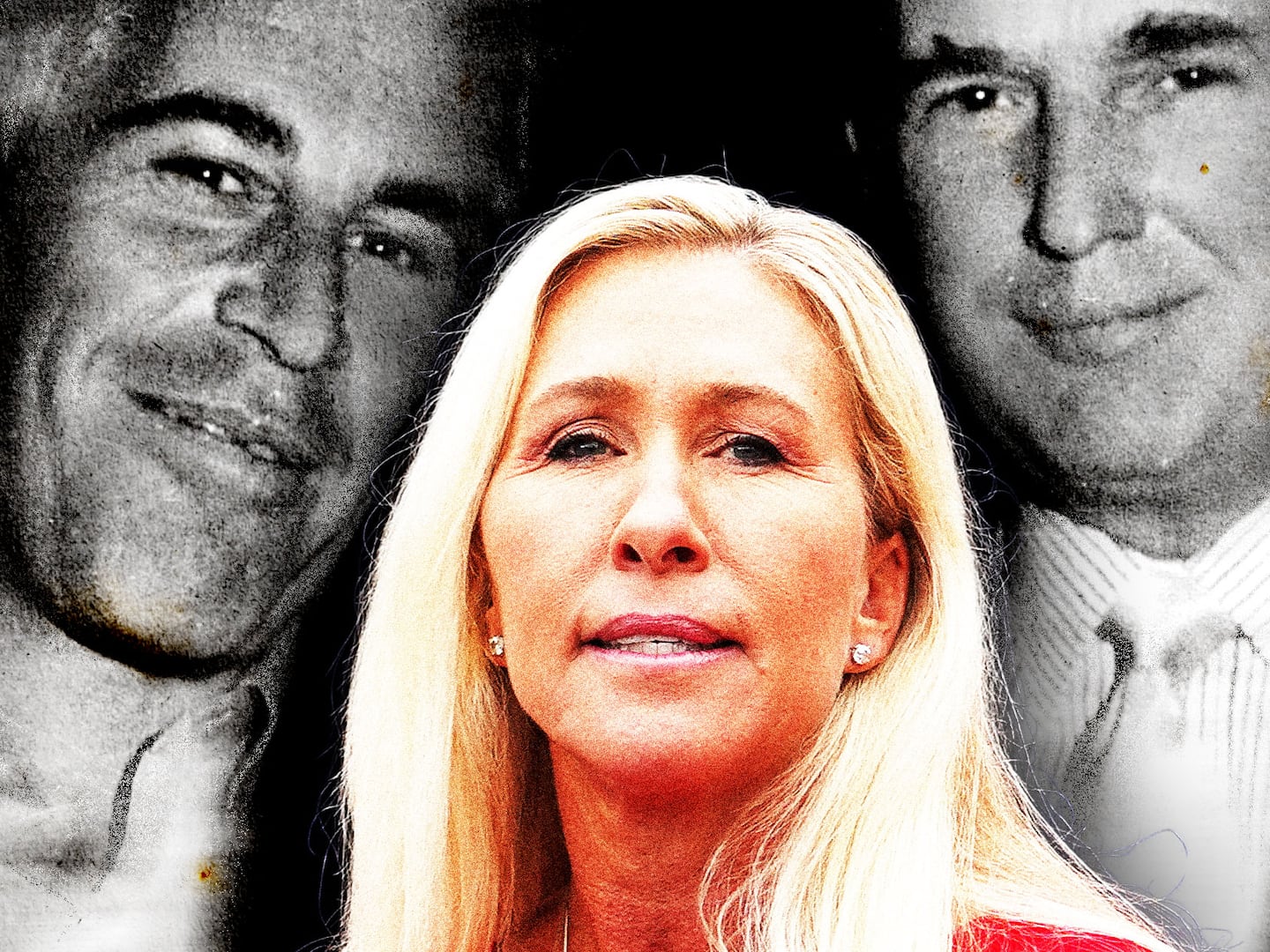
At 26, Seth Rogen is losing weight—and gaining muscle.
And he’s not afraid to use it. When the time came to fight for Jody Hill’s dark comedy script Observe and Report, which opens April 10, Rogen persuaded Warner Bros. to let them keep the film’s deluded bipolar antihero, and a brutally violent ending. It seems that Rogen has gained some movie-star clout in the past few years.
“As long as it’s on the cheaper side,” says Rogen with his infectious “heh, heh, heh” chuckle. We’re talking in Austin, Texas, at South by Southwest, where Observe, his $25-million mall comedy, debuted to a raucous crowd. The festival strategy is not a coincidence: Viral buzz from SXSW started the Knocked Up juggernaut back in 2007.
“Harvey should listen to somebody. He completely mishandled that entire movie in a horrific way.”
Commercial prospects are not as high for this realistic indie action comedy, which deconstructs movie clichés about hero fantasy and self-delusion. Without Rogen, it is unlikely that Observe and Report ever would have been made, says writer-director Jody Hill, sitting next to the dramatically slimmer Rogen—who has been dieting to play the newspaper publisher/superhero in Green Hornet—in a sunny Austin hotel room.
In Observe and Report, “Seth plays a lonely guy, and it’s kinda sad,” says Hill. “Parts are vulgar, parts are action-packed, and the tone is different from most comedies out there. Seth is a risk-taker at heart. He’s not into playing safe. It was a risk to be unlikable in a role like this.”
Rogen insists that he would never take on such a “tragic tale” if it wasn’t funny. “It’s an odd comedic take on stories that have been done before, like Taxi Driver,” he says, “about guys who see the world as a filthy, disgusting place, and they’re the ones chosen to clean it up, as ill-advised and ill-equipped as they might be to do it. To me, what separates a funny movie from a good movie is something personal. Even when we made Pineapple Express, a stupid weed action movie, we put a lot of personal stuff into it.”
Rogen shot Observe and Report within weeks of wrapping Kevin Smith’s Zack and Miri Make a Porno, and both movies took him out of what he calls his safety zone. A one-time standup comic from Vancouver, Rogen admits that he has enjoyed a charmed life—nurtured and protected as a member of Judd Apatow’s resident company in the TV shows Freaks and Geeks and Undeclared, then smoothly moving into features with 40-Year-Old Virgin and Rogen’s breakout romantic comedy Knocked Up, and on to the Apatow-produced R-rated comedy hits Superbad and Pineapple Express, which were written with Rogen’s childhood friend Evan Goldberg.
The two pals honed their comedy writing skills working with Sacha Baron Cohen on Da Ali G Show. Some of their original pitches made it into the show and helped build the Bruno character; they’re still giving Baron Cohen feedback on the feature film Bruno.
With Superbad and Pineapple Express, Rogen and Goldberg scored by delving into male sexual anxiety. “We were just horny guys in high school when we wrote Superbad,” Rogen says plainly, “so there was no other movie to write. Evan and I think the funniest thing is guys awkwardly trying to explain their feelings to one another. Some guys will make their whole career making these love stories between men and women, and we’re making these love stories between two men. They’re not really meant to be outwardly romantic, but we’re seeing what weird different normal genres we can apply them to.”
Insulated under Apatow as a writer or producer, and working as voice talent on animated films (his fifth animated feature, Monsters vs. Aliens, opens this weekend), Rogen finally met some turbulence during the release of Zack and Miri last year. He tried to talk to Harvey Weinstein about backing up the film with a marketing campaign that stuck with the controversial title. (The R-rated comedy grossed a disappointing $31 million.) “He didn’t listen to me,” Rogen says, laughing, but clearly still frustrated. “Harvey should listen to somebody. He completely mishandled that entire movie in a horrific way. If they could remove someone’s moviemaking license for gross misconduct…It tested higher than most of our movies tested generally. He’s insane.”
After that experience, Rogen insisted on retaining some control over his next projects. “I was more than happy to hand the control over to someone else,” he says, “but I wanted to make sure that that person had the control that they needed. I’ve seen a lot of movies get made where no one has control. No one likes it. The person making it is doing it for a studio, the studio thinks they’re doing it for an audience, and the audience gets some piece of shit in the end.”
Hill credits Rogen with pushing Observe and Report into production after it was dawdling in development limbo, watered down by each succession of studio notes. An admirer of Hill’s first movie, Foot Fist Way, Rogen invited the director to the set of Knocked Up. “Judd and Seth making each other laugh is an amazing thing to watch,” says Hill. When the filmmaker showed Rogen his script about a mentally unstable, lonely mall security guard who wants to save the world, Rogen was immediately game. “He got it right off the bat,” says Hill. “He was playing a serious character. We wouldn’t play anything for laughs.”
But Rogen insisted that the studio sign off on letting them shoot the first draft of the script. “’If I’m going to do this I want it to be wildest thing you’ve ever done,’” Rogen told Hill. “Seth could probably make a comedic career doing stoner-type roles and making movies like Knocked Up,” Hill says. “But he wants to make the weirdest movies he can.”
Rogen admits that he never expected to be a movie star. When he was in his early 20s, he says he threw himself at everything to see what would stick, auditioning for jobs as a writer or actor. Apatow has said that he’s never worked with anyone who improvises in character better than Rogen. For his part, Hill calls Rogen’s brand of improvisation “emotional improv—rather than trying different jokes, Seth will do each take differently: ‘Do cocky, do insecure.’ That keeps jokes from coming out of the head instead of the heart.”
Rogen sees himself as a writer first, actor second. Like Quentin Tarantino? “No.” Jon Favreau? “No…maybe Albert Brooks.”
“I feel very comfortable telling someone I know how they could improve their script,” he says without a hint of arrogance. “I feel much more comfortable as a writer than an actor. I feel like I am a much better writer than I am an actor. So that’s why I improvise, maybe, because it’s a sneaky way I’ve discovered of using my actual talent, heheheheh.”
Luckily, Rogen can afford to take a risk on Observe and Report. He follows it with his biggest-budget movie to date, Apatow’s return to the directing chair, the mordant summer comedy Funny People, co-starring Adam Sandler, which opens July 31.
And Rogen is clearly happy to be back calling the shots as executive producer and co-writer with Goldberg on Green Hornet, Sony’s comic-book action feature. Finding the right director took an extra six months after Asian martial-arts expert Stephen Chow ( Kung Fu Hustle) left the project over creative differences. “He just didn’t want to make the movie we wanted to make and we didn’t really want to make the movie he wanted to make,” says Rogen. “It’s a difference in sensibility. It would be very hard for someone who’s never made a movie in America, who doesn’t speak the language well, to direct a $100 million action movie. That became very clear to everyone.” (Chow is staying on, however, to play sidekick Kato.)
Returning to square one, Rogen, Goldberg, and producer Neil Moritz started dating directors again. “You meet people, you sit down, have lunch with them,” he riffs. “You see if they like you and you like them. It’s a weird process, but we found our guy.” Michel Gondry ( Eternal Sunshine of the Spotless Mind) starts shooting at the end of June for release in 2010.
“As long as Seth keeps making interesting choices he’ll be around,” says Hill. During production, no matter how rough things got, hearing Rogen’s chuckle always cheered him up. “It’s the best laugh in Hollywood.”
Anne Thompson launched the daily ThompsononHollywood blog in March 2007, when she joined Variety as a columnist. Previously, she was deputy film editor of The Hollywood Reporter, where she wrote the weekly syndicated column "Risky Business" and the Riskybizblog. She has also served as west coast editor of Premiere and Film Comment, and senior writer at Entertainment Weekly.






